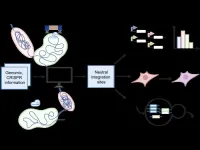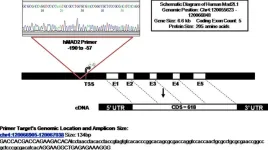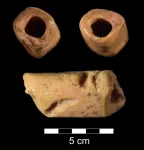(Press-News.org) A diet that limits meat and dairy but is rich in fruits, vegetables, grains, and nuts is linked to less erectile dysfunction, urinary incontinence, and other common side effects seen in prostate cancer patients, a new study shows.
Led by researchers at NYU Grossman School of Medicine and Harvard T.H. Chan School of Public Health, the analysis of more than 3,500 men with prostate cancer explored whether eating a more plant-based diet was associated with quality-of-life issues that often arise after treatment. Sorting patients into five groups (quintiles) based on the proportion of plant versus animal foods the men said they eat, the authors found that the quintile that consumed the most plants scored 8% to 11% better in measures of sexual function compared with the group that consumed the least.
Similarly, the results revealed up to 14% better scores for urinary health, with fewer instances of incontinence, obstruction, and irritation. The authors further found up to 13% better scores in hormonal health (which assesses symptoms like low energy, depression, and hot flashes) among the highest quintile of plant-based diet compared with the lowest.
“Our findings offer hope for those looking for ways to improve their quality of life after undergoing surgery, radiation, and other common therapies for prostate cancer, which can cause significant side effects,” said study lead author and urologist Stacy Loeb, MD. “Adding more fruits and vegetables to their diet, while reducing meat and dairy, is a simple step that patients can take,” added Loeb, a professor in the Departments of Urology and Population Health at NYU Langone Health.
Prostate cancer is among the most common and deadliest forms of cancer among American men, according to the U.S. Centers for Disease Control and Prevention. Previous research by the same team had already found that eating a plant-based diet may reduce the risk of developing the disease in the first place. Other investigations have connected this diet to a lower risk of sexual dysfunction in general but not specifically for those with prostate cancer, who are at particularly high risk for such issues.
The new study, publishing online Feb. 13 in the journal Cancer, is also believed to be the first of its kind to show better urinary health in these patients based on nutrition, says Loeb.
For the research, the team analyzed data from the Health Professionals Follow-Up Study, an ongoing investigation begun in 1986 and sponsored by Harvard Chan School. The data set is composed of information on more than 50,000 male dentists, pharmacists, optometrists, osteopaths, podiatrists, and veterinarians. The project was designed to better understand how nutrition influences risks related to cancer, heart disease, and other serious illnesses.
As part of the project, men with prostate cancer answered a questionnaire every four years about the kinds of foods they ate and in what proportions. Another survey, which was administered every two years, assessed frequency of incontinence, difficulties maintaining an erection, and problems with bowels, energy, and mood, among many other health concerns. Most of the patients (more than 83%) had received prostate cancer treatment, Loeb notes, and all included in the current study had early forms of the disease that had not yet spread to other organs. She adds that when searching for potential connections between plant-based diet and health, the research team took into account weight, physical activity, and many other factors that could affect quality of life.
Among the findings, the researchers say, eating high amounts of any plant-based food was linked to better sexual health, urinary health, and vitality scores, regardless of demographic factors, lifestyle differences, or history of other medical issues such as diabetes. Eating more healthy plant-based food was also associated with better bowel function, which, Loeb says, may be explained by the dietary fiber found in plants.
“These results add to the long list of health and environmental benefits of eating more plants and fewer animal products,” said Loeb. “They also clearly challenge the historical misconception that eating meat boosts sexual function in men, when in fact the opposite seems to be the case.”
Loeb cautions that the men assessed in the study were mostly White healthcare professionals. As a result, she says the team next plans to expand their research to a more diverse group of patients and to those with more advanced stages of the disease.
Funding for the study was provided by National Institutes of Health grant U01CA167552, New York State Department of Health, Tricia and Michael Berns, and the Prostate Cancer Foundation.
In addition to Loeb, other investigators involved in the study are Qi Hua, MSc; Alaina Shreves, MS; and Edward Giovannucci, MD, ScD, at Harvard Chan School in Boston. Scott Bauer, MD, ScM; Stacey Kenfield, ScD; June Chan, ScD; and Erin Van Blarigan, ScD, at the University of California, San Francisco; and Alicia Morgans, MD, MPH, at the Dana-Farber Cancer Institute in Boston. Lorelei Mucci, MPH, ScD, at Harvard Chan School, served as study senior author.
Media Inquiries:
Shira Polan
Phone: 212-404-4279
shira.polan@nyulangone.org
END
Plant-based diet tied to improved sexual health in men treated for prostate cancer
2024-02-13
ELSE PRESS RELEASES FROM THIS DATE:
Quality of care for patients who call 911 varies greatly across the United States, study finds
2024-02-13
Emergency medical service (EMS) systems are not consistently providing optimal care based on new national standards of quality to patients who call 911, according to a new study from the Icahn School of Medicine of Mount Sinai.
The study demonstrates that EMS performance on key clinical and patient safety measures varies widely across urban and rural communities. The findings, published in the peer-reviewed Prehospital Emergency Care, identify opportunities that could lead to improved care during 911 responses and improved outcomes for patients across the United States.
“EMS systems in the United States have traditionally relied ...
CRISPR-copies: New tool accelerates and optimizes genome editing
2024-02-13
CRISPR/Cas systems have undergone tremendous advancement in the past decade. These precise genome editing tools have applications ranging from transgenic crop development to gene therapy and beyond. And with their recent development of CRISPR-COPIES, researchers at the Center for Advanced Bioenergy and Bioproducts Innovation (CABBI) are further improving CRISPR’s versatility and ease of use.
“CRISPR-COPIES is a tool that can quickly identify appropriate chromosomal integration sites for genetic engineering in any organism,” said Huimin Zhao, CABBI Conversion Theme Leader ...
Teenagers need better reproductive health education to tackle parenthood fears
2024-02-13
Nearly half of teenagers are worried about having children and many lack knowledge about their reproductive health, find two new studies by UCL researchers.
The studies, published in Human Fertility and Health Education Journal, used survey results from 931 students in England aged 16 to 18, collected between May 2021 and July 2022.
The Human Fertility paper found that a majority of students (64%) still wanted to have children in the future – with nearly half (49%) desiring to have two children.
However, 45% of all participants said that they had concerns about future ...
Data-driven app results in 25% fewer emergency hospital admissions from care homes
2024-02-13
The use of a digital remote monitoring technology in care homes has been found to reduce hospital A&E attendances by 11% and emergency admissions by 25% in a new study from the Health Data Research UK (HDR UK) Better Care programme, published today in Age and Ageing - the official journal of the British Geriatrics Society.
There are over 400,000 people living in care homes across the UK, many of whom will be living with complex medical needs that put them at greater risk of needing emergency healthcare, especially during the winter months.
Through the HDR UK Better Care programme, a collaboration between the universities ...
In rural states, gardening and foraging helped prevent hunger during COVID: Study
2024-02-13
New research on rural New Englanders shows that gardening, hunting, fishing and other HWFP activities are important tools for maintaining food security through extreme events, such as pandemics or climate change events.
University of Vermont and University of Maine researchers found that both food insecurity and home and wild food production (HWFP) – gardening, hunting, fishing, foraging, and having “backyard” poultry or livestock – increased significantly during the COVID-19 pandemic, and those who undertook HWFP activities exhibited improved food security 9-12 months later.
The paper, published in Scientific Reports, surveyed ...
New study finds roughly 1 in 10 pregnant people will develop long COVID
2024-02-13
UNDER EMBARGO UNTIL: Feb. 12, 2024 5:45 p.m. Eastern Standard Time
Media Contacts: Karen Addis, APR, karen@addispr.com, +1 (301) 787-2394; Kerri Wade, MPA, kwade@smfm.org, +1 ...
Differential expression of Mad2 gene in human esophageal cancer
2024-02-12
“[...] people of the northeastern region [of India] consume betel quid, consisting of raw areca nut [...]. People often swallow the entire betel-quid after chewing, which is believed to contribute to the development of oral, esophageal, and gastric cancers.”
BUFFALO, NY- February 12, 2024 – A new research paper was published in Oncotarget's Volume 15 on February 5, 2024, entitled, “Differential expression of Mad2 gene is consequential to the patterns of histone H3 post-translational modifications in its promoter region in human esophageal ...
RIT's Center for Detectors to work on two NASA projects
2024-02-12
Rochester Institute of Technology’s Center for Detectors has been chosen by NASA for two research programs: Early Stage Innovations (ESI) and Strategic Astrophysics Technology (SAT), with the hope of helping future spacecraft find new discoveries in the vast universe.
Under the leadership of Center for Detectors Director Don Figer, the team will be advancing and characterizing single-photon sensing complementary metal-oxide semiconductor (CMOS) image sensors to determine if they can survive the harsh radiation environments in NASA missions. The intent is to fly these types of detectors on future missions to find life on Jupiter’s ...
Archaeologists discover oldest known bead in the Americas
2024-02-12
University of Wyoming archaeology Professor Todd Surovell and his team of collaborators have discovered a tube-shaped bead made of bone that is about 12,940 years old.
The bead, found at the La Prele Mammoth site in Converse County, is the oldest known bead in the Americas.
Surovell’s research was published in the peer-reviewed journal Scientific Reports; the paper is titled “Use of hare bone for the manufacture of a Clovis bead.” Members of the research team included people from UW, the Office of the Wyoming State Archaeologist, the University of Manchester, Weber ...
Interferon-gamma drives brain pathology in a mouse model of multiple system atrophy
2024-02-12
BIRMINGHAM, Ala. – Multiple system atrophy is a rare and fatal neurodegenerative disease, where insoluble inclusions of the protein alpha-synuclein appear in oligodendrocyte cells of the brain. The resulting pathogenesis features neuroinflammation, demyelination and neurodegeneration. Oligodendrocytes produce myelin, an insulating sheath on the axons of nerves.
In 2020, Ashley Harms, Ph.D., and University of Alabama at Birmingham colleagues published an Acta Neuropathologica study that used a mouse model to show that the ...




